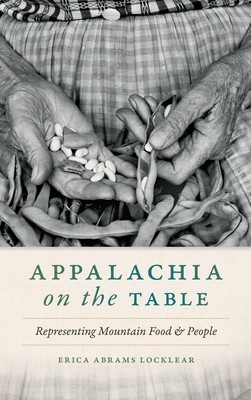
- We will send in 10–14 business days.
- Author: Erica Abrams Locklear
- Publisher: University of Georgia Press
- Year: 2023
- Pages: 242
- ISBN-10: 0820363405
- ISBN-13: 9780820363400
- Format: 15.2 x 22.9 x 1.9 cm, hardcover
- Language: English
- SAVE -10% with code: EXTRA
Reviews
Description
When her mother passed along a cookbook made and assembled by her grandmother, Erica Abrams Locklear thought she knew what to expect. But rather than finding a homemade cookbook full of apple stack cake, leather britches, pickled watermelon, or other "traditional" mountain recipes, Locklear discovered recipes for devil's food cake with coconut icing, grape catsup, and fig pickles. Some recipes even relied on food products like Bisquick, Swans Down flour, and Calumet baking powder. Where, Locklear wondered, did her Appalachian food script come from? And what implicit judgments had she made about her grandmother based on the foods she imagined she would have been interested in cooking?
Appalachia on the Table argues, in part, that since the conception of Appalachia as a distinctly different region from the rest of the South and the United States, the foods associated with the region and its people have often been used to socially categorize and stigmatize mountain people. Rather than investigate the actual foods consumed in Appalachia, Locklear instead focuses on the representations of foods consumed, implied moral judgments about those foods, and how those judgments shape reader perceptions of those depicted. The question at the core of Locklear's analysis asks, How did the dominant culinary narrative of the region come into existence and what consequences has that narrative had for people in the mountains?EXTRA 10 % discount with code: EXTRA
The promotion ends in 18d.21:40:27
The discount code is valid when purchasing from 10 €. Discounts do not stack.
- Author: Erica Abrams Locklear
- Publisher: University of Georgia Press
- Year: 2023
- Pages: 242
- ISBN-10: 0820363405
- ISBN-13: 9780820363400
- Format: 15.2 x 22.9 x 1.9 cm, hardcover
- Language: English English
When her mother passed along a cookbook made and assembled by her grandmother, Erica Abrams Locklear thought she knew what to expect. But rather than finding a homemade cookbook full of apple stack cake, leather britches, pickled watermelon, or other "traditional" mountain recipes, Locklear discovered recipes for devil's food cake with coconut icing, grape catsup, and fig pickles. Some recipes even relied on food products like Bisquick, Swans Down flour, and Calumet baking powder. Where, Locklear wondered, did her Appalachian food script come from? And what implicit judgments had she made about her grandmother based on the foods she imagined she would have been interested in cooking?
Appalachia on the Table argues, in part, that since the conception of Appalachia as a distinctly different region from the rest of the South and the United States, the foods associated with the region and its people have often been used to socially categorize and stigmatize mountain people. Rather than investigate the actual foods consumed in Appalachia, Locklear instead focuses on the representations of foods consumed, implied moral judgments about those foods, and how those judgments shape reader perceptions of those depicted. The question at the core of Locklear's analysis asks, How did the dominant culinary narrative of the region come into existence and what consequences has that narrative had for people in the mountains?

Reviews